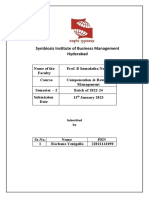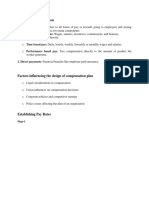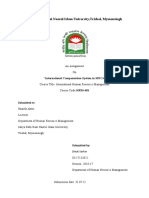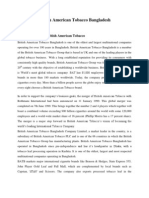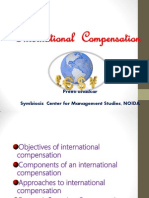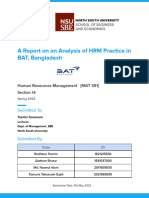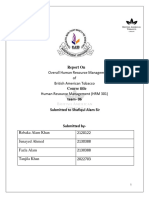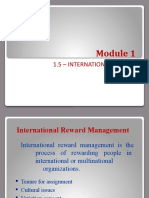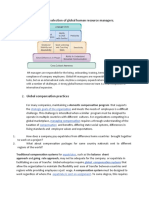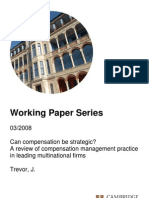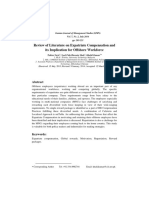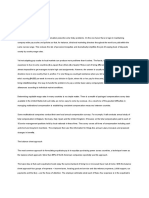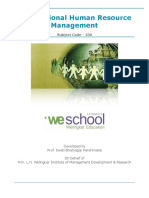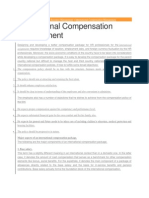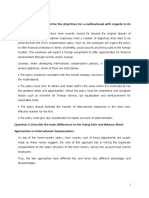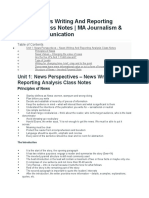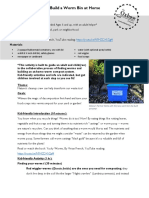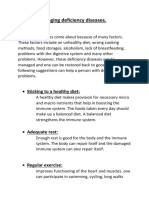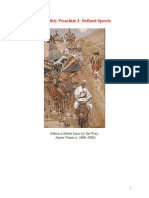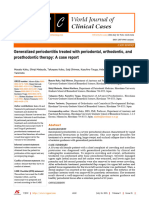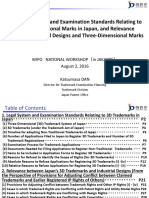0% found this document useful (0 votes)
81 views7 pagesInternational Assignment
The report analyzes British American Tobacco's (BAT) international compensation practices, focusing on how the company adapts its remuneration strategies to diverse cultural, legal, and economic environments. It highlights the importance of market-based pay, performance-based compensation, and comprehensive benefits for employees, particularly expatriates. The study aims to provide insights for other multinational corporations on optimizing compensation systems while addressing regulatory and ethical challenges.
Uploaded by
Md Mizanur RahmanCopyright
© © All Rights Reserved
We take content rights seriously. If you suspect this is your content, claim it here.
Available Formats
Download as DOCX, PDF, TXT or read online on Scribd
0% found this document useful (0 votes)
81 views7 pagesInternational Assignment
The report analyzes British American Tobacco's (BAT) international compensation practices, focusing on how the company adapts its remuneration strategies to diverse cultural, legal, and economic environments. It highlights the importance of market-based pay, performance-based compensation, and comprehensive benefits for employees, particularly expatriates. The study aims to provide insights for other multinational corporations on optimizing compensation systems while addressing regulatory and ethical challenges.
Uploaded by
Md Mizanur RahmanCopyright
© © All Rights Reserved
We take content rights seriously. If you suspect this is your content, claim it here.
Available Formats
Download as DOCX, PDF, TXT or read online on Scribd
/ 7
